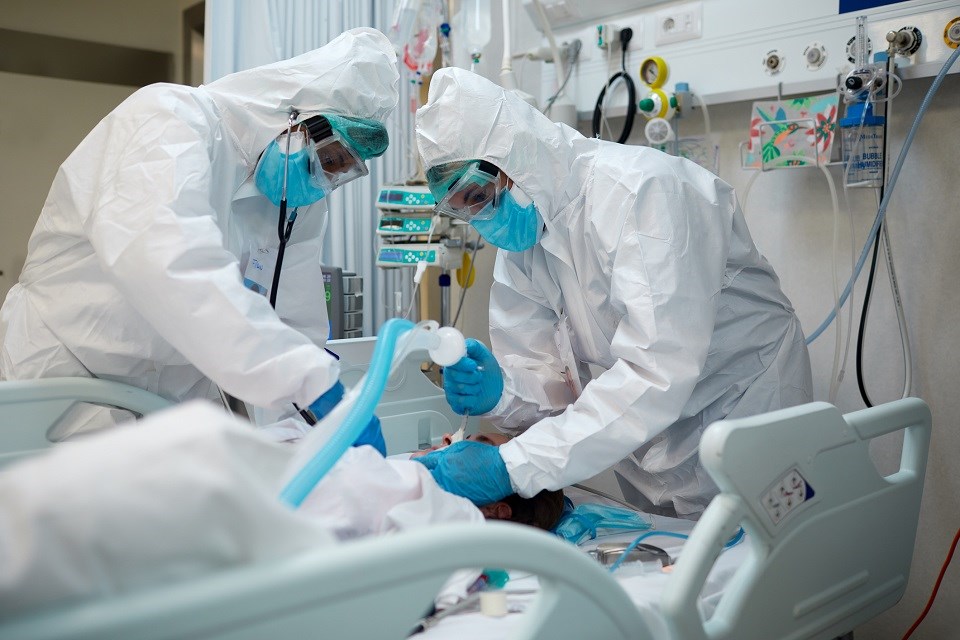There was a degree of confidence three weeks ago that the circuit breaker measures imposed to curb the escalating COVID-19 count would do the trick.
But the rolling seven-day average case count has jumped about a third since March 29 and is only now levelling off. Most of the other measures used to track the virus went in the wrong direction as well. It looks like the restaurant and group fitness restrictions and the shutdown of Whistler announced then didn’t have the impact that was expected when they were imposed.
Which brings us to Monday afternoon, when the toughest measures in a year were imposed, including a prohibition on travelling outside of your health authority, starting this weekend. Faced with a decision on whether to extend the duration of the indoor dining ban at restaurants or rescind it, they not only extended it through to the Victoria Day long weekend, they imposed a whole new round of restrictions.
It can be debated whether it’s the persistent and obvious defiance of the rules that’s led to the latest restrictions, or whether the circuit breaker regime just wasn’t stringent enough from the beginning. But some people would have ignored the rules no matter when they were imposed.
It was acknowledged during a background briefing that cases “are not coming down as fast we need.”
There’s a standard part of every briefing about how “the vast majority of British Columbians” are acting sensibly and obeying the rules. But it looks like the minority of people being careless or flouting the rules are spreading the virus around enough that a further crackdown will take effect soon. No more RVs on the ferries. Roadside stops at health authority borders. Hotel reservation clerks will be judging whether your visit qualifies as essential and if not — your booking could soon be voided.
Premier John Horgan said: “There will be a fine if you are travelling outside of your [health] area without a legitimate reason.”
B.C. stopped short of the measures imposed in Ontario, where authorities are patrolling the Manitoba and Quebec borders. Still, the latest restrictions take the fight against the virus to a new level. If you are abiding by all the rules and guidelines and taking all the precautions, none of them will change your life. You’ve been lectured for months about staying close to home, minimizing indoor exposure and avoiding non-essential social contacts.
If you’ve been ignoring it, you’ll have to figure out new angles to work around the rules, because they are getting more serious.
With perfect hindsight, they should have been part of the circuit breaker round of curbs. Provincial health officer Dr. Bonnie Henry said then that B.C. was at “the start of exponential growth in new cases.” Those were driving more hospitalization and more critical care cases.
Referring to the year-long balancing act between protecting health and keeping B.C. open, she said: “Our balance in B.C. is now off.”
So she imposed the circuit breaker. But regarding travel, she just begged people not to do it. The pleading is over. By this weekend it will be ordering, backed up by police road checks.
The impetus for the crackdown is in the hospitalization statistics. They’ve been creeping up for weeks and were described as “serious” on Monday. The modelling shows the hospital occupancy rate isn’t quite following the worst-case scenario, but it is following the bad case scenario.
There was a new emphasis on the collective exhaustion of health care workers. Their capacity for more work is now as much a factor as bed capacity. Anecdotally, a nurse recently shared scheduling information with me showing a large share of shifts going unfilled because people can’t work any more overtime.
The hospital system is still getting by using the regular beds and hasn’t activated surge capacity to any great degree yet. But pressing more beds into use is a distinct possibility. That would involve more surgery cancellations and potentially moving patients among different hospitals to level the load, which would impose another level of stress on staff.
Quicker action might have made a bit of a difference. But compliance with the overall message will determine how the final chapter goes. It’s up to citizens, not the government.




